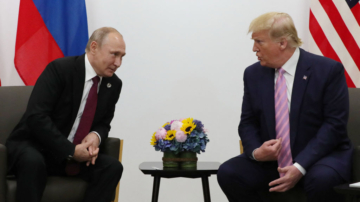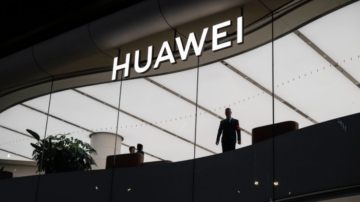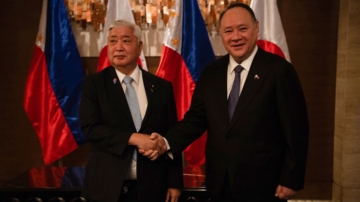【新唐人2014年04月30日訊】西方電腦安全機構早在多年前,已監測到數十個中國黑客組織的行動,他們懷疑這些黑客組織中的絕大部分具有「政府背景」,並懷疑這些黑客的行動,包括盜竊商業機密。但中共當局一直否認有關的指控,並聲稱它是美國黑客攻擊的受害者。而最近,澳大利亞媒體再一次提出來自中國的黑客,在長達一年的時間裡,入侵澳大利亞議會的計算機系統,竊取了議員的私人郵件等。
《澳大利亞金融評論報》28號報導說,2011年,中國(中共)的情報機構,可能在長達一年的時間裡,針對澳大利亞議會計算機系統的網絡攻擊中,「獲取」了議員的私人郵件。
同一天,澳大利亞《悉尼先驅晨報》也在報導中提及,當時中國情報機構以遠程系統管理員方式,進入澳大利亞議會計算機系統,併進行了「有效控制」。
報導還說,這次攻擊範圍之廣,遠遠超過了人們所認為的範圍。
2011年,澳大利亞國內媒體曾經報導了這次的黑客入侵,但當時認為,中國情報機構侵入議會的網絡時間只有一個月。
據了解,中國黑客曾在去年(2013年)9月,攻擊了五個歐盟國家的電腦系統。總部設在美國加州的電腦安全公司「火眼」說,中國黑客滲透了這些國家外交部的電腦系統,向員工發送一些帶病毒的文件。但「火眼」拒絕說出這些被中共黑客入侵的國家名稱。
早在2008年,已傳出中國黑客闖進了美國白宮的計算機網絡,並獲得政府官員的電子郵件。2011年,又有美國媒體報導,總部設在中國的黑客,闖入了白宮員工的谷歌Gmail帳戶。
美國白宮在2012年10月1號發佈聲明說,白宮網路日前遭到駭客攻擊,但遭入侵之網路為非機密的區域網路,沒有機密資料被竊走。但根據美國保守派媒體《華盛頓自由燈塔》(Washington Free Beacon)報導,一名不願透露姓名的白宮官員透露,駭客是由中國政府所指使,於9月初就「駭進」白宮網路,並成功侵入最機敏的軍事指揮系統,企圖偷取美國核彈的指揮控制密碼,是中國駭客至今最大膽的攻擊行動。
旅美中國社會問題研究人士張健﹕「主要的目標,第一是國外的政府機關、情報單位,或者說高科技公司,和任何的銀行系統都是中共它攻擊的目標。另外中共我相信它不單純是攻擊,因為它還要不斷的去測試它的無硝煙的戰爭,指到哪兒打到哪兒。這些新聞媒體所報出來的,只是冰山一角。」
針對澳洲媒體的報導,中國外交部發言人秦剛,28號再次以慣有的口吻說,「不知道澳大利亞媒體對中方的指責依據何在?」他再次辯駁,「中方也是網絡黑客攻擊的受害者」。並表示,澳大利亞媒體是「無端的指責、炒作」。
《全球自由信息運動》網站創辦人張新宇﹕「它(中共)一方面要搜索全世界各個國家的訊息,利用美國人發明的Internet(網際網路)這種技術,去蒐集它敵人的情報。共產黨都是這樣的,過去也是這樣的,它也知道有人會發現,也會有記者會問,那他(秦剛)原來在他辦公室裡面已經做好功課了——怎麼回答,就是這個老調重彈。他是一個機器木偶這樣的一個人。」
《全球自由信息運動》網站創辦人張新宇表示,中共為了蒐集各國情報,透過很多方式、方法進行。
張新宇﹕「(中共)之前就是派間諜,比如說以前說澳大利亞有1500個中共間諜,加拿大也有那麼一、兩千個,美國也不知道多少﹗它(中共)派這種間諜和線人,這只是一個方面,但是現在因為有網路的發展,它利用網絡去搞。」
張健﹕「中國的黑客是利用國家機器,它採用國家資源,大規模的入侵,通過蠕蟲加上木馬,再傳染更多更多的電腦,他們侵入了很多系統,盜竊了很多高、新、尖、專的資料。」
據了解,澳大利亞議會電腦系統是一個非加密的內部系統,並非用於機密通訊。在這個系統中,黑客能接觸到所有郵件、通訊資料庫和系統中儲存的其他文件。
採訪/朱智善 編輯/周平 後製/陳建銘
Chinese Hackers Read Australian MP Letters
Dozens of Chinese hacker organizations have been detected by
A Western computer security agency many years ago.
These organizations were suspected of state support and of stealing
trade secrets.
However, the Communist regime has routinely denied the
allegations and claimed that itself was a victim of American hacker
attacks.
Recently, the Australian media reported that Chinese hackers
from within China have invaded the Australian Parliament's computer
system and read personal e-mails for a year.
According to Australian Financial Review's report on the 28th,
the Chinese intelligence agencies that penetrated Australia's
parliamentary computer network in 2011 may have been inside
the system for up to a year and had access to MP's emails.
It was reported that Chinese agencies obtained remote, system
administrator access to the Parliament's computer network,
which "effectively gave them control of it".
It is said the breach was much more serious than what was
previously believed.
In March 2011, The Australian newspaper and other media
outlets reported that China was suspected of accessing, for more
than a month.
In September, 2013, Chinese hackers were reported to have broken
into the computer systems of foreign ministries of five European
governments,
according to research from California-based cyber security
company FireEye.
The report did not name the targets
Back in 2008, Chinese hackers reportedly broke into a White
House computer network and obtained emails between
government officials.
In 2011, hackers based in China were reported again to have
broken into Google Gmail accounts belonging to employees
working in the White House, according to the Wall Street Journal.
The White House announced on October 1, 2012 that the cyber
attacks occurred and breached a network used by the White
House Military Office, and no infiltrations of data took place.
However, according to the Washington Free Beacon,
the cyber attack was considered one of the most aggressive the
Chinese hackers have conducted for sensitive military
intelligence managed by the Office,
including strategic nuclear commands.
Zhang Jian, China's social problems researcher: "The main target
of the cyber attacks are foreign government agencies, intelligence
units, high-tech companies, and the banking systems.
I don't think any of these cyber attacks is simply an attack,
but continuous tests of its war without smoke.
It is targeting everything. The reported is only the tip of
the iceberg."
The Communist Foreign Ministry spokesman Qin Gang
responded to the Australian media reports with the routine:
"groundless".
He said, the Chinese are also the victim of the cyber attacks,
and denied the Australian media's accusation.
Zhang Xinyu, Global Information Freedom Movement founder:
"One of the objectives is to obtain each government's information.
It is intelligence work with the use of internet technology.
That's what the Communist is about.
Knowing that people will find out and the medial will ask,
he (Qin Gang)has done his homework on the responses.
Parroting the same tune, just like a puppet machine."
Activist Zhang Xinyu indicates that the CCP has utilized all sorts of
means to collect intelligence.
Zhang Xinyu: "Previously it was the special agents. For example,
there were 1,500 Chinese spies in Australia, around 2,000 in
Canada, and more in the United States.
Now, in the Internet era, they engage in Internet espionage."
Zhang Jian: "Chinese hackers run on state facilities and
supported by national resources to penetrate on a large-scale.
With the use of worms and trojan horses to infect and invade
many more systems in order to steal a lot of highly advanced
and top secrets."
It was reported that the Australian parliamentary network is
unclassified,
which means it isn't used for secret communication,
so China got access to all emails, contact databases and other
documents stored on Parliament's computers.
Interview/Zhu Zhishan Edit/Zhou Ping Post-Production/Chen Jianming
《澳大利亞金融評論報》28號報導說,2011年,中國(中共)的情報機構,可能在長達一年的時間裡,針對澳大利亞議會計算機系統的網絡攻擊中,「獲取」了議員的私人郵件。
同一天,澳大利亞《悉尼先驅晨報》也在報導中提及,當時中國情報機構以遠程系統管理員方式,進入澳大利亞議會計算機系統,併進行了「有效控制」。
報導還說,這次攻擊範圍之廣,遠遠超過了人們所認為的範圍。
2011年,澳大利亞國內媒體曾經報導了這次的黑客入侵,但當時認為,中國情報機構侵入議會的網絡時間只有一個月。
據了解,中國黑客曾在去年(2013年)9月,攻擊了五個歐盟國家的電腦系統。總部設在美國加州的電腦安全公司「火眼」說,中國黑客滲透了這些國家外交部的電腦系統,向員工發送一些帶病毒的文件。但「火眼」拒絕說出這些被中共黑客入侵的國家名稱。
早在2008年,已傳出中國黑客闖進了美國白宮的計算機網絡,並獲得政府官員的電子郵件。2011年,又有美國媒體報導,總部設在中國的黑客,闖入了白宮員工的谷歌Gmail帳戶。
美國白宮在2012年10月1號發佈聲明說,白宮網路日前遭到駭客攻擊,但遭入侵之網路為非機密的區域網路,沒有機密資料被竊走。但根據美國保守派媒體《華盛頓自由燈塔》(Washington Free Beacon)報導,一名不願透露姓名的白宮官員透露,駭客是由中國政府所指使,於9月初就「駭進」白宮網路,並成功侵入最機敏的軍事指揮系統,企圖偷取美國核彈的指揮控制密碼,是中國駭客至今最大膽的攻擊行動。
旅美中國社會問題研究人士張健﹕「主要的目標,第一是國外的政府機關、情報單位,或者說高科技公司,和任何的銀行系統都是中共它攻擊的目標。另外中共我相信它不單純是攻擊,因為它還要不斷的去測試它的無硝煙的戰爭,指到哪兒打到哪兒。這些新聞媒體所報出來的,只是冰山一角。」
針對澳洲媒體的報導,中國外交部發言人秦剛,28號再次以慣有的口吻說,「不知道澳大利亞媒體對中方的指責依據何在?」他再次辯駁,「中方也是網絡黑客攻擊的受害者」。並表示,澳大利亞媒體是「無端的指責、炒作」。
《全球自由信息運動》網站創辦人張新宇﹕「它(中共)一方面要搜索全世界各個國家的訊息,利用美國人發明的Internet(網際網路)這種技術,去蒐集它敵人的情報。共產黨都是這樣的,過去也是這樣的,它也知道有人會發現,也會有記者會問,那他(秦剛)原來在他辦公室裡面已經做好功課了——怎麼回答,就是這個老調重彈。他是一個機器木偶這樣的一個人。」
《全球自由信息運動》網站創辦人張新宇表示,中共為了蒐集各國情報,透過很多方式、方法進行。
張新宇﹕「(中共)之前就是派間諜,比如說以前說澳大利亞有1500個中共間諜,加拿大也有那麼一、兩千個,美國也不知道多少﹗它(中共)派這種間諜和線人,這只是一個方面,但是現在因為有網路的發展,它利用網絡去搞。」
張健﹕「中國的黑客是利用國家機器,它採用國家資源,大規模的入侵,通過蠕蟲加上木馬,再傳染更多更多的電腦,他們侵入了很多系統,盜竊了很多高、新、尖、專的資料。」
據了解,澳大利亞議會電腦系統是一個非加密的內部系統,並非用於機密通訊。在這個系統中,黑客能接觸到所有郵件、通訊資料庫和系統中儲存的其他文件。
採訪/朱智善 編輯/周平 後製/陳建銘
Chinese Hackers Read Australian MP Letters
Dozens of Chinese hacker organizations have been detected by
A Western computer security agency many years ago.
These organizations were suspected of state support and of stealing
trade secrets.
However, the Communist regime has routinely denied the
allegations and claimed that itself was a victim of American hacker
attacks.
Recently, the Australian media reported that Chinese hackers
from within China have invaded the Australian Parliament's computer
system and read personal e-mails for a year.
According to Australian Financial Review's report on the 28th,
the Chinese intelligence agencies that penetrated Australia's
parliamentary computer network in 2011 may have been inside
the system for up to a year and had access to MP's emails.
It was reported that Chinese agencies obtained remote, system
administrator access to the Parliament's computer network,
which "effectively gave them control of it".
It is said the breach was much more serious than what was
previously believed.
In March 2011, The Australian newspaper and other media
outlets reported that China was suspected of accessing, for more
than a month.
In September, 2013, Chinese hackers were reported to have broken
into the computer systems of foreign ministries of five European
governments,
according to research from California-based cyber security
company FireEye.
The report did not name the targets
Back in 2008, Chinese hackers reportedly broke into a White
House computer network and obtained emails between
government officials.
In 2011, hackers based in China were reported again to have
broken into Google Gmail accounts belonging to employees
working in the White House, according to the Wall Street Journal.
The White House announced on October 1, 2012 that the cyber
attacks occurred and breached a network used by the White
House Military Office, and no infiltrations of data took place.
However, according to the Washington Free Beacon,
the cyber attack was considered one of the most aggressive the
Chinese hackers have conducted for sensitive military
intelligence managed by the Office,
including strategic nuclear commands.
Zhang Jian, China's social problems researcher: "The main target
of the cyber attacks are foreign government agencies, intelligence
units, high-tech companies, and the banking systems.
I don't think any of these cyber attacks is simply an attack,
but continuous tests of its war without smoke.
It is targeting everything. The reported is only the tip of
the iceberg."
The Communist Foreign Ministry spokesman Qin Gang
responded to the Australian media reports with the routine:
"groundless".
He said, the Chinese are also the victim of the cyber attacks,
and denied the Australian media's accusation.
Zhang Xinyu, Global Information Freedom Movement founder:
"One of the objectives is to obtain each government's information.
It is intelligence work with the use of internet technology.
That's what the Communist is about.
Knowing that people will find out and the medial will ask,
he (Qin Gang)has done his homework on the responses.
Parroting the same tune, just like a puppet machine."
Activist Zhang Xinyu indicates that the CCP has utilized all sorts of
means to collect intelligence.
Zhang Xinyu: "Previously it was the special agents. For example,
there were 1,500 Chinese spies in Australia, around 2,000 in
Canada, and more in the United States.
Now, in the Internet era, they engage in Internet espionage."
Zhang Jian: "Chinese hackers run on state facilities and
supported by national resources to penetrate on a large-scale.
With the use of worms and trojan horses to infect and invade
many more systems in order to steal a lot of highly advanced
and top secrets."
It was reported that the Australian parliamentary network is
unclassified,
which means it isn't used for secret communication,
so China got access to all emails, contact databases and other
documents stored on Parliament's computers.
Interview/Zhu Zhishan Edit/Zhou Ping Post-Production/Chen Jianming








